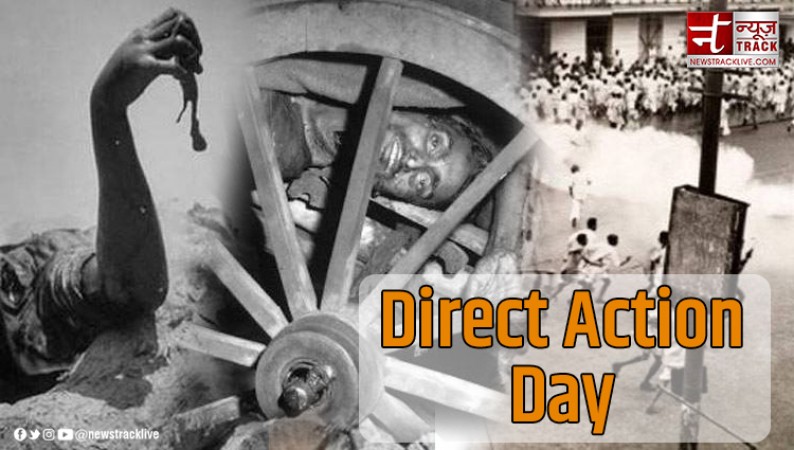
The tumultuous history of the Indian subcontinent is marked by pivotal events that shaped its destiny. One such significant event is the 'Direct Action Day,' which occurred on 16 August 1946. This day holds immense historical significance as it served as a precursor to the partition of India and the subsequent birth of two independent nations, India and Pakistan. The Muslim League's proclamation of Direct Action Day aimed to emphasize their demand for a separate Muslim homeland, as the British prepared to relinquish control over the subcontinent. This article delves into the background, causes, consequences, and implications of Direct Action Day in shaping the course of Indian history.
Background and Causes: The demand for a separate Muslim homeland gained momentum in the early 20th century due to a perceived religious, cultural, and political divide between the Hindu and Muslim communities in India. The All-India Muslim League, led by Muhammad Ali Jinnah, championed this cause, fearing that the Hindu-majority Indian National Congress would overlook Muslim interests in a united India. The British government's plan to transfer power further heightened the tensions, as various political parties and religious groups jockeyed for influence and control.
Amidst this backdrop, the Muslim League Council proclaimed 16 August 1946 as 'Direct Action Day.' The primary aim was to accentuate their demand for a separate Muslim homeland, envisioning a country where Muslims would be the majority. The declaration of this day was a call for mass protests and demonstrations to showcase the Muslim League's determination in achieving their objectives.
Events of Direct Action Day: On the fateful day of 16 August 1946, massive rallies and protests were organized by the Muslim League in various parts of India, notably in Calcutta (now Kolkata). The city, known for its diverse religious and cultural fabric, became the epicenter of the unrest. The atmosphere was charged with fervor, but the demonstrations quickly escalated into violent clashes between the Hindu and Muslim communities.
The clashes in Calcutta resulted in widespread riots, arson, and loss of lives. The city witnessed unprecedented bloodshed and communal violence. The situation spiraled out of control, leading to a breakdown of law and order. The horrors of Direct Action Day served as a stark reminder of the deep-rooted communal tensions that had plagued the subcontinent.
Consequences and Implications: The aftermath of Direct Action Day was deeply tragic and far-reaching. The communal violence in Calcutta echoed across the subcontinent, as similar clashes erupted in other regions. The massacre and widespread destruction left scars that would linger for generations. The event was a turning point in the Indian struggle for independence, as it fueled the argument for partitioning the country into separate Hindu and Muslim majority nations.
The violence and communal strife following Direct Action Day expedited the need for a resolution. The Mountbatten Plan, which proposed the partition of India along religious lines, gained momentum. The Indian Independence Act of 1947 was enacted, and on 15 August 1947, India and Pakistan emerged as two distinct nations. The dream of a united India was shattered, replaced by the reality of two independent countries.
Direct Action Day on 16 August stands as a grim reminder of the communal tensions that marred the Indian subcontinent's path to independence. The Muslim League's proclamation was a desperate attempt to assert their demand for a separate Muslim homeland, but it ended up catalyzing violence and division on an unprecedented scale. The event marked the beginning of the end of a united India, ultimately leading to the partition and the birth of two new nations. The legacy of Direct Action Day serves as a somber lesson in the perils of communalism and the consequences of divisive politics.